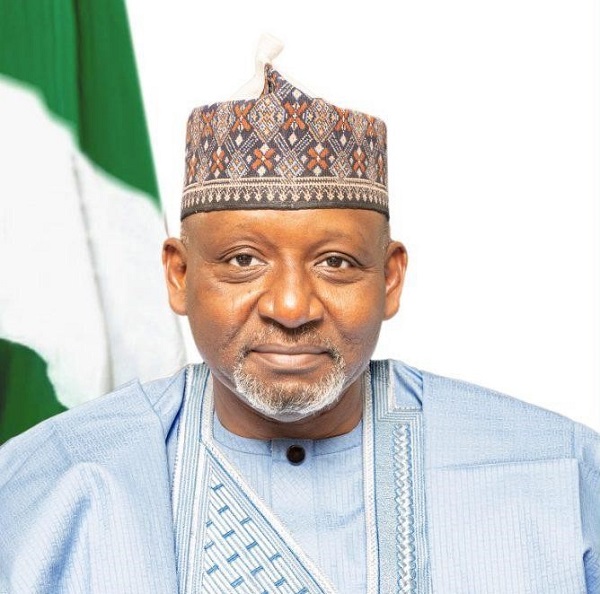
The Federal Government has assured investors of promising returns on investment and a guaranteed, secure environment in partnership with the transportation sector in Nigeria.
The director of press and public relations, Eric Ojiekwe, stated that the Minister of Transportation, Engr. Mu’azu Sambo, made this known during his presentation, titled “Financing Nigerian’s Transport Infrastructure” at the Nigeria International Economic Partnership Forum held in New York, USA, recently.
“The environment is conducive, Nigeria has a record unbroken 24 years of democracy, an executive order for making businesses easy and a fair legal system where investor’s rights are protected,” he said.
According to Sambo, the role of transportation infrastructure in Nigeria is aimed at reviving the economy, transforming it and placing it on a more sustainable and inclusive growth strategy, emphasising inter-modal transport infrastructure connectivity, roads, railways and waterways, each contributing to the functioning of the Nigerian economy.
Speaking further, he said the rail sub-sector has recorded notable achievements: the commissioning and making operational for commercial activities, the Abuja- Kaduna,Warri – Itakpe – Ajaokuta and Lagos-Ibadan double track standard gauge rail lines, the groundbreaking of wagon assembly in Kajola, Ogun State; Port Harcourt – Maiduguri, Kano – Maradi (Niger Republic) and Kano – Kaduna standard gauge rail lines and the connection of the Apapa Port by rail, while that of Warri Port is ongoing.
“In this regard, we have already ongoing projects from Lagos to Kano, to Maradi in the Niger Republic, the Eastern line connecting Port Harcourt and Maiduguri (a narrow gauge which we are rehabilitating), we would have loved to have the standard gauge linking both major cities and other cities in the south and north,” Sambo said.
Nigeria’s major focus, he said, is to ensure that every capital city is connected by rail because every part of the country is blessed with abundant natural resources that need to be moved quickly into markets.
He said Nigeria has over 850kms of coastline strategically placed along the Gulf of Guinea and the whole idea is to connect the six seaports in Nigeria located in the south to the hinterland and even beyond.
On the need to attract the biggest shipping vessels to the country, the Federal Government initiated creation of deep seaports with an average draught of 15m. “The six seaports of Nigeria were built in 1980s, one or two of them were built around 1913 and 1921 and a lot of them require massive upgrade and rehabilitation, stating that the major one is the Apapa-Tincan port which contributes and accounts for about 70 per cent of Nigeria’s imports”.
The minister said the Lekki Deep Seaport is about to commence operations anytime soon and was built on a BOOT basis by Lekki Port LFTZ Enterprise Limited with a concession period of 45 years, the Badagry Deep Sea port has been recently approved by the Federal Executive Council (FEC) for construction by international private investors over three years on concession for 45 years also on a BOOT basis. Bonny and Bakassi seaports are the other ongoing initiatives for deep seaports and opportunities for private capital, while the Ibom deep seaport is in the process of procurement.
He welcomed investors to establish more deep seaports and work out agreeable terms for the limited resources available.
The minister explained that, to decongest seaports, improve supply chain logistics and bring shipping activities closer to shippers in the hinterland, Nigeria initiated the development through the Nigerian Shippers Council, with inland dry ports as ports of origin and destination. So, Nigeria now has a fully operational inland dry port in Kaduna while other inland ports in Kano, Katsina, Aba, Ibadan, Jos and Funtua are at various stages of development and completion.
“Other achievements include rail connection to the inland dry ports in Kaduna and Kano, the commencement of container movement from Apapa Port to Ebute-metta, Ijoko and Ibadan to reduce traffic gridlock, among others.
“While the inland waterways sub-sector in Nigeria has about 10,000 kms of potentially navigable waterways, with 3000km currently navigable all year. This creates a lot of opportunity on the inland waterways as an alternative, cost-effective and environmentally friendly mode of transport connectivity,” he said.
On transportation infrastructure financing, Sambo said the transport infrastructure can be funded through government or private sector financing. Government funding options would include budget funding (budgetary allocation, enhanced statutory allocation and viability gap funding) and off-budget financing (special intervention funds, bonds, low-interest concessional loans, financing from aid and donor agencies etc.)
“The private sector financing options would typically include pension funds, long-term commercial bonds, multilateral agencies, export credit finance, private equity, infrastructure funds, PPP etc. So far, the public-private partnerships (PPP) have proved [to be] a viable option to unleash unprecedented infrastructure growth and create a balance between state ownership and privatisation,” he added.

